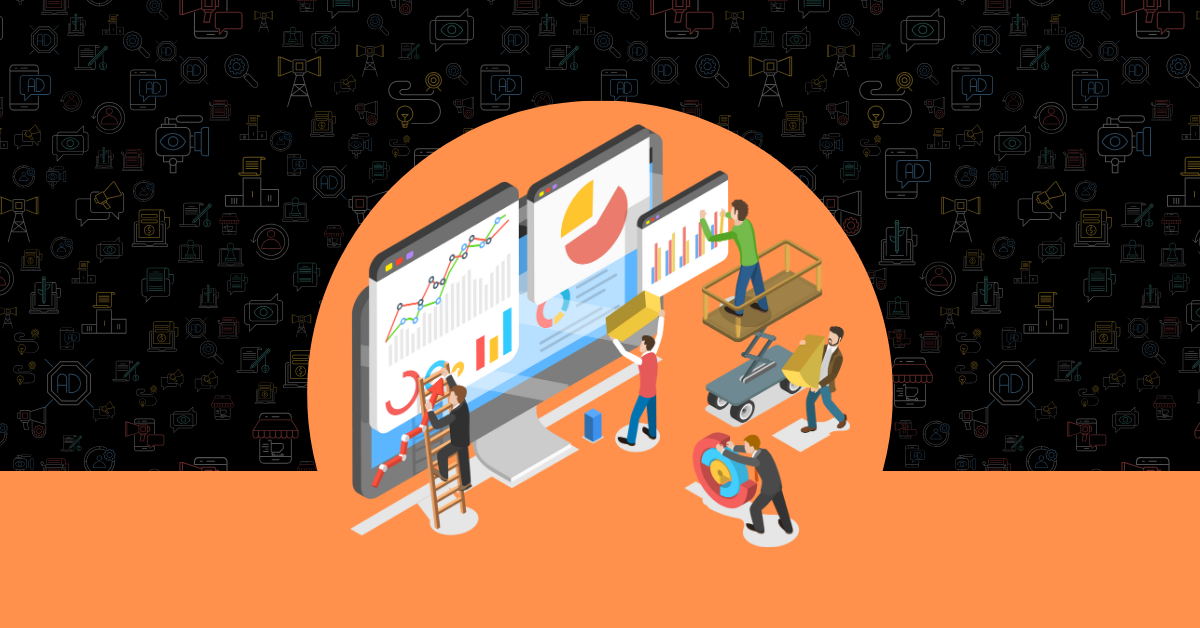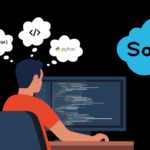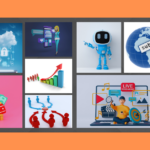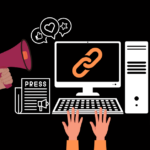This article contains affiliate links – but that doesn’t mean this piece is an ad.
All content is our honest take on the service/product and incorporates our
real thoughts and experience using it.
You had an idea. You talked to some colleagues, and everyone ran to the rooftops and shouted, “Yes! We need this in our lives!”
You got to work and got a product ready for market. Go through all the necessary steps to set up a company. When you’re ready to sell, your next step will be product marketing.
Why? Because the median growth rate of publicly traded SaaS companies in 2023 was 22%. You make that happen with product marketing.
So, what is SaaS product marketing? Is it different from other types of marketing? How do you get started? What do you do first?
Patience, grasshopper. We’ll get you there. Let’s get started.
Table of Contents
What Is SaaS Product Marketing? What All Does It Entail?
SaaS product marketing is the strategic process of promoting and selling a Software as a Service (SaaS) product. It focuses on product value demonstration, customer retention, and building long-term customer relationships.
The SaaS business model has some distinctive features. It’s different from marketing physical products and a brick-and-mortar shop. Things like subscription-based pricing and cloud hosting require a different approach.

What is SaaS product marketing, and how does it break down? At its core, it’s the following
- A true understanding of the SaaS business model.
- Intimate knowledge of your buyer personas.
- Having a brand built around a great unique selling proposition.
- Bringing your product to the right people at the right time using the right channels.
TL;DR – 1+1+1= product marketing
Customers buy and install traditional software products on their devices. Hosted in the cloud, you can access SaaS products exclusively online.
The SaaS business model offers customers access to services for a recurring fee. It removes upfront costs and makes it more affordable for businesses of all sizes.
Businesses love SaaS apps. More than 70% think they’re the greatest tech asset to their company.
Because of this, SaaS companies have the fluidity to update and improve their products on the fly. And they can do it without disrupting their customers’ usage.
The cost of acquiring new customers may be higher than retaining existing ones. The solution most businesses focus on is building a strong relationship with currency customers. They do this through exceptional product experiences and customer support.
If your product is truly exceptional, then it will sell itself. That’s where things like referral and affiliate programs and word-of-mouth marketing next level your startup.
The Key Aspects of Product Marketing for SaaS
Now that you have a better understanding of the question, what is SaaS product marketing? Let’s explore the key aspects of product marketing for SaaS companies:
1. Value Demonstration – SaaS Product Market Fit
SaaS product market fit. Who are your customers? What do they want? How exactly are you going to solve their problem? What makes you better than other companies offering a similar product?
These are critical elements of SaaS product marketing. Showcasing the value and benefits of the product to potential customers is how you “do it right”. Highlight how the product can solve specific pain points or improve business processes.
You operate completely online. Provide users with a clear demonstration of what they can expect from using the product. Make it easy for them to find and use. Offerings can include demo videos, free trials, or providing interactive website demos.
When answering the question, what is SaaS product marketing, understanding this element is crucial to your product’s success.
2. Customer Retention
Since SaaS companies rely heavily on recurring revenue, customer retention is a priority.
According to a recent LinkedIn article, one of the predictions for the future of SaaS is that the best customer service will prevail.
SaaS product marketing strategies require building strong relationships with existing customers. The best way to do that is by delivering exceptional experiences.
Strive to continuously improve the product based on customer feedback.
3. Niche Targeting
SaaS products are often designed to serve specific industries or solve particular problems.
Your strategies should include targeted messaging and outreach to niche audiences.
It should be a multi-channel approach. At least until you figure out which ones work best for you.
There is almost no limit to what you can do here. Use social media, industry events, and partnerships to get the word out.
4. Data-Driven Strategies
All SaaS companies have access to a vast amount of data on customer usage patterns and behaviors.
Consider user preferences. Use that information to enhance targeted marketing strategies and improve the product’s features.
Strategies for Effective Product Marketing B2B SaaS

Effective product marketing B2B SaaS strategies should be a multi-pronged attack. Methods include at least some of the following:
- Targeted Segmentation: Use data on customer demographics, behaviors, and preferences. SaaS startups can segment their target audience and tailor their messaging accordingly.
- Content Marketing: Creating high-quality and compelling content that addresses the pain points of potential customers. It’s an effective way to establish thought leadership and generate leads for a SaaS product.
- Influencer Partnerships: Collaborating with industry influencers helps increase brand awareness and credibility.
Best Practices in SaaS Product Marketing
Success in SaaS product marketing will follow some of these best practices:
- Customer-Centric Approach: Focus on understanding your customers’ needs. Continuously work on improving the product to meet those needs.
- Continuous Innovation: Innovation is crucial for staying relevant and meeting evolving customer demands.
- Data Analysis and Optimization: Leverage data analytics tools and analyze marketing campaigns to optimize strategies.
- Establishing Trust: Customers often subscribe to a SaaS product for an extended period. It’s necessary, as well as the right thing to do, to establish trust through transparent pricing and excellent customer support.
- Collaboration Between Sales and Marketing Teams: Teams must work together to align messaging and strategies.
Importance of Value Demonstration in SaaS Marketing
SaaS product marketing is not just about presenting features and benefits. Successful businesses know that demonstrating the value of a solution attracts and retains customers.
It’s a crowded market out there. Customers need to know why they should invest in a particular software. Value demonstration can take many forms. You can use case studies and testimonials, for example.
But the ultimate goal is to show how the solution can solve real-world problems. What are the tangible benefits?
Without an effective demonstration, SaaS businesses risk losing out to competitors who can communicate the solution’s value. Value demonstration has a direct impact on customer acquisition and retention.
Showcasing the benefits of your products attracts more customers, increases loyalty, and keeps you competitive in a fast-paced market.
Customer Retention in the SaaS Industry
Customer retention is just as important as acquiring new customers. Maybe even more so. The recurring revenue model relies heavily on retaining existing customers and minimizing churn.
SaaS companies must prioritize providing exceptional user experiences. It’s the number one way to keep your custom retention level high. On top of that, you’ll need to regularly gather customer feedback and constantly stay on the grind to improve products.
Offering excellent customer support plays a huge role here. It develops long-term relationships. And then they tell all their friends about what a great service you have.
SaaS Pricing Models and Their Impact on Marketing
There are different variations within this model. One example is tiered pricing based on features or usage levels.
The pricing model chosen can alter SaaS product marketing strategies and solutions.
Tiered pricing may require targeted messaging for each individual tier. Some customers may need more service. Some may want less.
This is called appealing to specific customer segments.
On the other hand, flat-rate pricing may focus more on highlighting the overall value and benefits of the product.
Know. Your. Customer.
This is another reason you need great buyer personas and a deep understanding of your customer. You want to know everything about them.
Where do they buy their groceries? What kind of car do they drive? Are they divorced?
You would be surprised what data tells us about a person’s spending habits and business needs.
The Role of Cloud Hosting in SaaS Product Marketing
Cloud hosting allows for easy access and scalability. It’s a huge part of the gears that keep this machine working.
But how does it impact their marketing strategies?
Businesses can use it to track and analyze customer usage data easily.
The more data you analyze, the better you can tailor your messaging and improve your product.
Hosting on the cloud also allows for quick updates and fixes. This enables a seamless user experience.
What Is SaaS Product Marketing? It’s One of the Biggest Steps in Building and Scaling Your Business
What is SaaS product marketing, and what can it do for me? The answer is what can it do for your customer. It should do everything they need it to do.
Product marketing for SaaS companies is a multifaceted discipline. It encompasses an array of strategies and practices.
Key elements such as targeted segmentation, SaaS product market fit, and content marketing are pivotal to your success. Don’t sleep on influencer partnerships, customer-centric approaches, and continuous innovation.
We cannot overstate the importance of value demonstration. It is the cornerstone of customer attraction and retention. Pricing models and cloud hosting are other significant factors shaping marketing strategies.
The product marketing B2B SaaS landscape will continue to evolve. Businesses that leverage these tools and adapt to changing customer needs will lead their organizations toward sustained growth.
The future of SaaS product marketing promises to be exciting and dynamic. We hope this post underscores the need for constant learning, adaptation, and innovation in your business.




